Communities
2022–2023 Annual Report
University Student Union at
California State University, Northridge
2022–2023 Annual Report
University Student Union at
California State University, Northridge
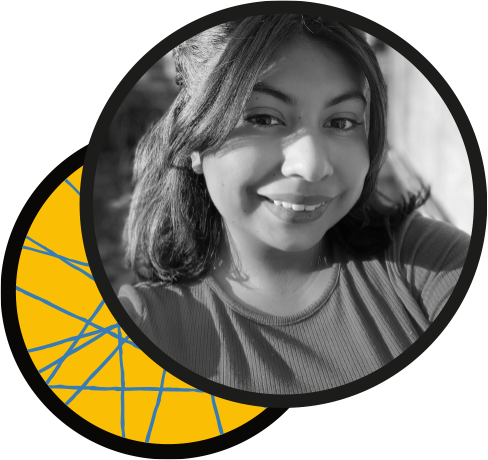
Giselle Olmedo Torres
Chair, USU Board of Directors
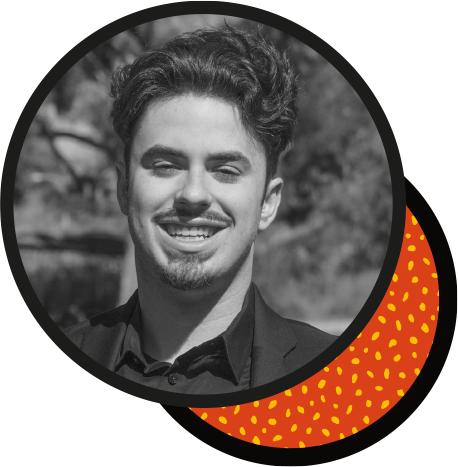
Christian Lipton
Vice-Chair, USU Board of Directors
The USU Board of Directors (BOD) has seen tremendous growth with the reshaping of perspectives in our campus community. We have noted excitement building around the New Heart of Campus and the Basic Needs Suite projects and hope to see more people entering our spaces and learning about the upcoming changes. We hope that future board members become knowledgeable about the projects as they progress and are key to informing students as the debut of new USU initiatives approaches.
As directors serve as a pipeline of information to Matadors by sharing about key USU policies and the direct impact they will have on day-to-day campus life, students will understand the importance of our work in the upcoming academic year. Overall, as chair and vice chair, we could not have asked for a better board during the past year. Whatever challenge we faced, we knew we had the full BOD’s support. We thank each and every person who engaged with us and wish the upcoming board the best.
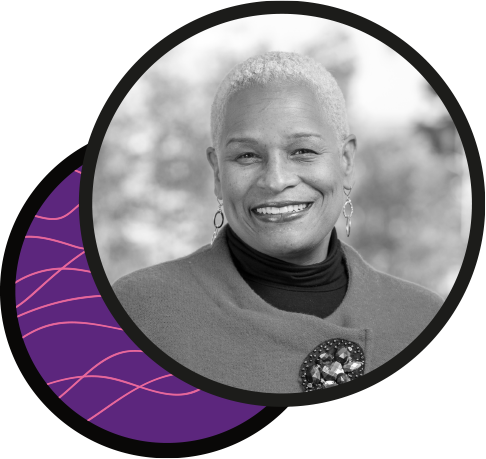
Debra L. Hammond
USU Executive Director
The University Student Union (USU) at California State University Northridge (CSUN) ushered in another transformative year for CSUN students. Challenges slowly emerged during the campus transition to full operation, as a new generation of students persevered towards graduation while seeking support programs, services and opportunities.
One of our priorities was to reengage with our students to determine the scope of our “New Heart of Campus” initiative. Diligent outreach to the student body uncovered a growing disparity in student basic needs. From housing and food security, to clothing, child support and a community kitchen — Matadors need more today in light of social and economic woes.
Our mission has always been to empower Matadors in their journey through higher education. With meaningful employment opportunities, impactful programs and services, and essential resource centers for the military-connected, undocumented and mixed-status families, and LGTQIA+ communities, CSUN students continue to embrace community building as our collective foundational strength.
The USU’s Board of Directors has laid the foundation to address the rising costs of attending our institution. Significant funding for campus parking passes, gas cards and new scholarship opportunities have been a priority to curb the rising educational costs for students in an uncertain economic climate.
Looking forward, our commitment to basic needs for the campus community is stronger than ever. Work behind the scenes is making progress week-over-week, and soon will be available to those students who need it the most. CSUN students have brought a new level of passion to the USU, and it is something we are excited to foster and channel into lasting change.
In celebration of her 40 years of service, Executive Director Debra L. Hammond was recognized with a Lifetime Achievement Award by the Community of Practice for Multi-Ethnic Professionals and Allies (COMP) at the ACUI (Association of College Unions International) Annual Conference in Boston, MA. During the conference, attendees celebrated 50 years of COMP.
The Veterans Resource Center (VRC) celebrated its 10th anniversary of military-connected support. A Salute to Service Week honored the milestone with a commemorative “mess hall” at the Orchard Conference Center. Students and alumni joined staff and faculty to honor the center’s decade of promoting the academic, personal and professional development of student veterans, reservists, members of the National Guard and their dependents. Special guests included the CSUN ROTC color guard, opening remarks from Interim Assistant Vice President of Student Affairs, Equity and Inclusion Dr. Freddie Sánchez, USU Executive Director Debra Hammond, and USU Acting Assistant Director for Resource Centers Sarina Loeb.
The Pride Center celebrated its 10th anniversary with a timeline walk through the Plaza del Sol that showcased the Pride Center’s history of accomplishments, including past event pictures submitted by students, faculty, staff and community members, and items from the decade. A dinner celebration in the Grand Salon honored LGBTQIA+ student activists and Pride Center employees for their work to support the LGBTQIA+ community at CSUN. Featured speakers included CSUN President Erika D. Beck, Executive Director Debra L. Hammond, Assistant Director of Resource Centers Sarina Loeb, and Pride Center Manager Whitney Workman.
The USU Board of Directors (BOD)
The Board approved the creation of an endowed scholarship to be awarded annually to a student leader whose efforts highlight the values of servant leadership, community service and campus engagement.
The USU Board of Directors approved the allocation of $15,000 from unallocated operating reserves to create working funds of $5,000 each for the Pride Center Endowed Scholarship, DREAM Center Endowed Scholarship, and Veterans Resource Center Endowed Scholarship. The three scholarships were endowed with $50,000 each in 2021 to allow students to receive financial support toward their academic and professional goals. The working funds will allow the scholarships to be awarded beginning in the 2023–2024 academic year until the endowment begins generating interest.
The USU Board of Directors approved the allocation of $55,000 from unallocated operating reserves to endow the Tanni Block Memorial LGBTQIA+ Scholarship — an award to be given annually to a student leader at CSUN. The scholarship was funded by individual donor contributions prior to the endowment. It honors Tanni Block, an extraordinary student leader at CSUN, by recognizing on-campus leadership, involvement and advocacy efforts that support inclusivity on campus, particularly with and for the LGBTQIA+ community.
The Board approved an allocation of $150,000 from unallocated reserves and/or surplus funds to distribute 500 semester-long parking passes and 500 gas gift cards to Matadors during the Fall 2023 semester.
The University Student Union adopted a land acknowledgement to recognize the traditional territory of the Indigenous people on whose land the university sits.
California State University, Northridge (CSUN) and the University Student Union (USU) recognize and acknowledge the Fernandeño Tataviam Band of Mission Indians, the First People of this ancestral and unceded land base of the village of Sesevenga that is occupied by our institution. We honor their Elders, past, present, and future. We recognize that the Fernandeño Tataviam are still here, and we are committed to uplifting their stories, culture, and community.
Upholding CSUN’s value to respect all people and by our alliances with local communities, we have a responsibility to acknowledge and make visible the university’s relationship with Tribes. By offering this Land Acknowledgement, we affirm Indigenous sovereignty and will work to hold the campus community accountable to the needs of American Indian peoples in the region.
In 2019, the Academic Senate of the California State University encouraged campuses to adopt land acknowledgement statements to “honor the 573 federally recognized Native tribes in addition to all terminated and recognized tribes.” In many cases, the descendants recognize the land as their home today.
The University Student Union land acknowledgement consists of oral and written statements at formal meetings and programs, can be found on its websites, and electronic mail signatures, and soon will be reflected on commemorative plaques or within physical facilities.
A Welcome to Wellness event at the Oasis Wellness Center gave Matadors a unique meditative experience at the Cacao and Sound Journey with Sögu. The evening performance with sound healer and meditation guide Sögu, was paired with Cacao, a ceremonial drink served to open the heart and enhance the meditation experience.
Supporting efforts to bring the best student services and resources to CSUN, the USU assessment team completed 19 program and facility assessments. Staff used the data to guide improvements and organizational effectiveness.
In the spring, 2,086 students “Felt the Pulse” through an interactive showcase, focus groups, and interactive booths located across campus. The campaign was developed and executed as a comprehensive “Experience the Heart of Campus” campaign aimed at re-engaging students with the USU and to gather valuable information for consideration about a future renovation project.
The monthlong event included a “Where’s Matty” scavenger hunt for USU resources and services, a Poolside DJ at the Student Recreation Center, and the USU Night Market, featuring food and entertainment for the campus community. The interactive activities included research polls, a virtual photo booth and a giant heart wall graphic that participants were encouraged to sign to show their connection to the USU, the Heart of Campus.
In addition, a campus-wide student survey received 5,564 responses (12.9%), bringing total engagement for the campaign to 7,650.
Executive Director Debra L. Hammond joined ACUI to develop a diversity, equity and inclusion (DEI) self-assessment tool for the industry. The University Student Union at CSUN will serve as one of the campuses to participate in the assessment’s pilot.
Women and non-binary people of color from varying stages in their careers provided insight about their personal and shared experiences as undergraduates and in their post-graduate journeys. Following a panel discussion, attendees practiced their networking skills in a mixer and business card swap.
Together with the USU DREAM Center, Asian American Studies Pathways Project and the Black House, CSUN students celebrated the intersecting identities of undocumented students and created community through an open-air market featuring games, karaoke, and local small businesses.
Sixty-nine students received $42,000 to continue their higher education goals through donations from The Change Reaction and the Angel Fund DACA Assistance Grant. These grants provide support for undocumented students and students from mixed-status households by providing financial assistance to cover costs associated with the following immigration legal applications: DACA Renewal, Advanced Parole, Family Petition, Adjustment of Status, Work Authorization Replacement, and Asylum and Refugee Work-Authorization Renewal.
The USU DREAM Center along with campus collaborations urged Matadors to be heard in a variety of uplifting events during Coming Out of the Shadows week. Students told stories through artistic expression with a zine making workshop, amplified their voices during a free expression open mic, and celebrated the diverse cinematic universe at the BIPOC (Black, Indigenous and people of color) Movie Night.
Students came together to share, connect and heal in this collaboration with UCS. This discussion provided the campus community with an avenue to discuss and process the events surrounding the humanitarian crisis and violence taking place in Ukraine.
The HEAL Project gave support to 75 students who have experienced or are currently experiencing challenging circumstances, more than double the number of students supported in the previous 2 years of the project combined. Additionally, Angelouise “Angel” Legaspi HEAL Project coordinator was nominated by students registered through the Disability Resources and Educational Services (DRES) Office for the Outstanding Staff Award and was honored as the recipient at the 2023 DRES Recognition Award Ceremony.
Around the Block with QTPOC, a collaboration with the Pride Center, Asian American Studies Pathways Project, Black House, and the Women’s Research & Resource Center, provided QTPOC students with resources and safe space locations at CSUN and throughout the San Fernando Valley.
Founded in the summer of 2020 as virtual programming during the height of the pandemic and social unrest, the first in-person Essential Talks Speaker Series was held in collaboration with University Counseling Services. National social change and thought leaders held important conversations with CSUN students about issues facing underserved communities.
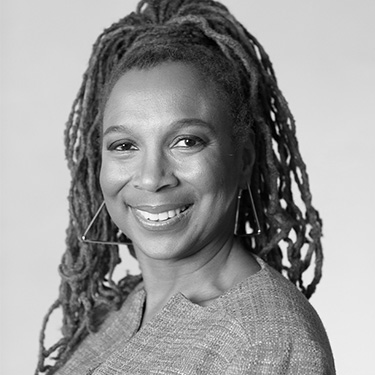
Sponsored by the Diversity Equity and Innovation Grant, this much anticipated lecture featured renowned civil rights activist and scholar Kimberle Crenshaw who discussed Critical Race Theory and its impact on social change. Crenshaw is an author and advocate for Critical Race Theory and intersectionality, both terms she coined, as well as a professor at the UCLA School of Law and Columbia Law School.
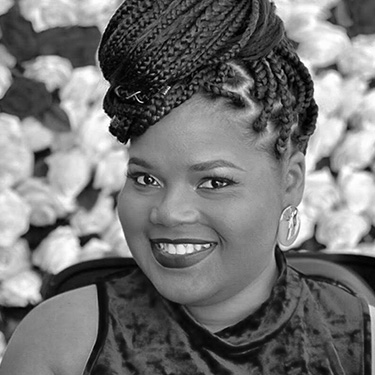
In collaboration with Associated Students (AS), Adding the A to the DEI Equation with Candis Welch asked CSUN students to expand the Diversity, Equity and Inclusion (DEI) equation to include accessibility, fostering an inclusive environment, discussing disability and implicit bias, and going beyond compliance to true accessibility. Welch connected with Matadors by tracing her personal story, her journey at CSUN and her advocacy work towards creating a more equitable and accessible world.
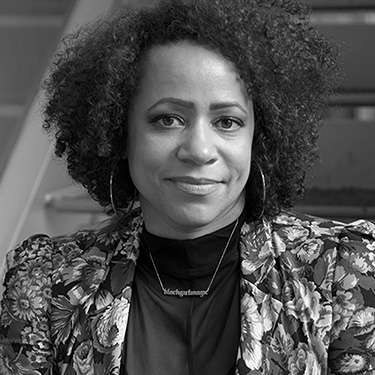
In partnership with University Counseling Services (UCS), other campus departments and the Diversity and Equity Innovation Grant, this event featured Pulitzer Prize-winning journalist, advocate, and author of The 1619 Project, Nikole Hannah-Jones. Moderators included Professor and Chair of the Africana Studies Department Dr. Marquita Gammage and Dean of the College of Health and Human Development Dr. Mechelle Best. The lecture on social justice and anti-racist work, covered content from Hannah-Jones’s published book, The 1619 Project.
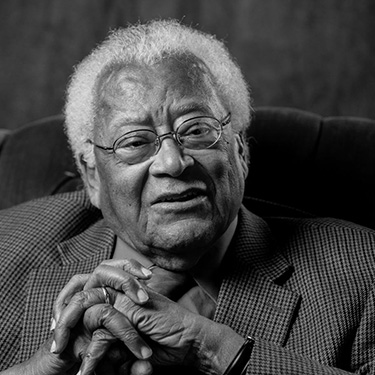
In collaboration with CSUN’s Civil Discourse & Social Change (CDSC) initiative, Reverend James M. Lawson Jr., a scholar and practitioner of nonviolent civil resistance presented, Where Do We Go From Here: Chaos or Community. Matadors learned about the leading strategist and trainer of nonviolence in the Civil Rights Movement and how the CSUN community can make an impact by utilizing nonviolent approaches to create social and political change. Lawson, the Spring 2023 CSUN Distinguished Scholar, has taught at CSUN since 2011 and is a pastor at Holman United Methodist Church in Los Angeles.
The DREAM Center hosted the Central American Resource Center (CARECEN), who shared virtual information with the CSUN community about the requirements for special immigrant juvenile status. Expert insight and advice was shared with undocumented students about pathway options to becoming a U.S. citizen.
In collaboration with CARECEN’s CSU Legal team, the DREAM Center helped the CSUN community gain first-hand knowledge about international travel from other undocumented students. Matadors and their families learned about the requirements to travel outside of the United States for educational, employment or humanitarian reasons.
The Oasis Wellness Center opened undocumented students’ third eye during this wellbeing workshop about holistic healing. Beginner yoga and aromatherapy workshops also were offered.
Students met with their communities during Cultural Welcomes. Nearly 500 Matadors identifying as African American/Black, American Indian, Asian American Pacific Islander (AAPI), or Latinx/a/o connected through games and entertainment while learning about student clubs and resources at CSUN.
The Veterans Resource Center brought veterans and military-connected Matadors together during Operation 48, a camping and white-water rafting trip in collaboration with Associated Students’ Outdoor Adventures. A post-event survey revealed that 100% of participants reported feeling more connected to the CSUN campus, and 100% of participants felt more connected with the veterans that attended.
An analysis by CSUN’s Office of Institutional Research found that regular use of the Student Recreation Center (SRC) had a positive impact on the semester grade point averages of first-time freshman, with members from traditionally underserved communities benefiting the most.
The Pride Center in collaboration with Africana Studies provided a discussion space about Black queer identity, community, and history. Award-winning educator, freelance journalist and national speaker Dr. Jon Paul Higgins spoke about the intersections of race, gender, and identity in entertainment; Legendary Father Jamari Amour discussed the history of ball culture as it relates to Black LGBTQIA+ experience; and Destiny Ninja, princess of the Haus of Ninja Los Angeles, led a vogue class.
The Boxing Training Program saw a 75% increase in participations from the previous year, up from 2,215 in 2021–2022 to 3,866 participants during 2022–2023.
Participation in Group Exercise classes at the SRC increased by 14% from the previous year, growing from 6,224 in 2021–2022 to 7,259 participations in 2022–2023.
Members of the Student Recreation Center’s Intramural Sports leagues brought a sense of comradery to SRC members. Team sports like outdoor flag football, soccer, basketball and dodgeball, volleyball, and ultimate frisbee created new connections and lasting relationships in the greatest increase in participation since the height of the pandemic.
The inaugural installment of Matador Fun Fest attracted 1,200 CSUN students and their dependents (ages 13 years and younger) to an inclusive event for Matadors that featured live student performances, a silent disco, sensory rooms, arts and crafts, free food and giveaways for the entire family.
More than 88,330 guests visited the Sol Center — a hub for study spaces, campus involvement, information services, cashier services, USU human services, and lounge spaces. Guest services staff fielded 7,346 questions and responded to 1,647 phone inquiries.
Reservations and Event Services arranged 5,500 bookings for meetings and campus community gatherings in more than 25 meeting and event spaces, generating $350,000 in revenue.
88,330 guests
7,346 questions
$350,000 revenue from bookings
| 2023 | 2022 | |
|---|---|---|
| Assets | ||
| Current assets | ||
| Cash and cash equivalents | 720,039 | 929,889 |
| Short-term investments | 9,944,002 | 9,539,805 |
| Accounts receivable, net | 97,407 | 17,809 |
| Prepaid expenses and other | 112,725 | 93,612 |
| Total current assets | 10,874,173 | 10,581,115 |
| Property and equipment, net | 344,305 | 400,766 |
| Total assets | 11,218,478 | 10,981,881 |
| Liabilities and Net Assets | ||
| Current liabilities | ||
| Accounts payable | 351,698 | 129,571 |
| Accrued expenses | 749,089 | 1,011,286 |
| Deferred revenue | 303,440 | 256,404 |
| Current portion of postretirement benefit payable | 30,879 | 26,760 |
| Total current liabilities | 1,435,106 | 1,424,021 |
| Commitments and contingencies | ||
| Postretirement benefit payable, net of current portion | 1,559,973 | 2,230,081 |
| Total liabilities | 2,995,079 | 3,654,102 |
| Net assets, without donor restrictions | 8,223,399 | 7,327,779 |
| Total liabilities and net assets | 11,218,478 | 10,981,881 |
| 2023 | 2022 | |
|---|---|---|
| Operating revenues | ||
| Student activity fees | 14,915,548 | 14,205,060 |
| Program revenue | 472,503 | 300,095 |
| Rental income | 794,381 | 547,339 |
| Recreation center income | 505,673 | 302,154 |
| Grant revenue | 606,013 | 476,896 |
| Other income | 547,953 | 585,885 |
| Total operating revenues | 17,842,071 | 16,417,429 |
| Operating expenses | ||
| Program services | 13,208,226 | 11,069,384 |
| General and administrative | 4,342,136 | 4,321,152 |
| Total operating expenses | 17,550,362 | 15,390,536 |
| Change in net assets from operating activities | 291,709 | 1,026,893 |
| Nonoperating (expense) revenue | ||
| Other components of net postretirement benefit cost | (97,256) | (86,625) |
| Postretirement changes other than net postretirement benefit cost | 657,117 | 1,061,435 |
| Investment income | 44,050 | 59,309 |
| Net nonoperating (expense) revenue | 603,911 | 1,034,119 |
| Change in net assets | 895,620 | 2,061,012 |
| Net assets, beginning | 7,327,779 | 5,266,767 |
| Net assets, end | 8,223,399 | 7,327,779 |